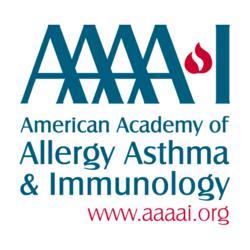FARE reports that the American Academy of Allergy, Asthma and Immunology and the European Academy of Allergy and Clinical Immunology have issued a consensus report on the current state of allergen immunotherapy (AIT).
This update, published in the May 2013 issue of the Journal of Allergy and Clinical Immunology, represents the findings of an expert panel nominated by the two academies.
In summary, the panel reports:
- AIT, which includes Oral Immunotherapy (OIT) and Sublingual immunotherapy (SLIT), is effective in reducing the symptoms of allergic asthma and rhinitis and modifies the underlying course of the disease;
- “AIT remains a niche treatment secondary to symptomatic drugs because of its cost, long duration of treatment, and concerns regarding safety and effectiveness”;
- “Further research is needed to develop novel therapies and optimize current ones”.
Worth noting, the panel made this specific comment within the text of the report:
For food allergy, oral immunotherapy (OIT) and SLIT have been successful in inducing desensitization to allergens, such as milk, peanut, eggs, and hazelnut, in small clinical trials. With OIT, the majority of adverse reactions have been oral or pharyngeal, with up to 15% of subjects having significant gastrointestinal side effects, but epinephrine use for more severe reactions has been reported. OIT and SLIT study protocols have only been conducted in highly controlled settings in which therapy for severe reactions was readily available. Neither OIT nor SLIT is recommended for widespread clinical use for food related allergy. For OIT and SLIT to become recommended as standards of care for food allergy, several facets of their use will need to be better defined, such as the relative risks of therapy versus allergen avoidance, optimal dosing regimens, and appropriate patient populations.
It should be noted that OIT and SLIT are not FDA approved therapies at this writing.





